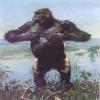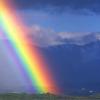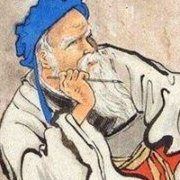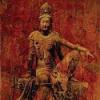Search the Community
Showing results for 'Dream'.
Found 7,591 results
-
You are of course, right... right view is in fact no view. However, 'view' is something that is latent in us... so much so that it is actually subconsciously affecting our perception of the unawakened life in every moment, shaping our perception into 'observer' and 'observed', inside and outside... if you hear a sound, or see a sight, don't you feel that they are 'outside' and you are 'in here'? Even if you do not make a gross concept about what you are... nonetheless the view and construct of a self, a subject and an object, an inside and an outside, is something very obvious to you... it may seem as truly real but actually it is just the view and construct hypnotizing you like a dream like a magical spell... it seems real, but actually isn't. Self-view is present in ALL beings who are still unawakened... and in Buddhism it is taught that it is precisely this ignorance, this view of self, that leads to the attachment of 'I', 'me', 'mine', that drives the entire craving, clinging, karma-making, rebirth-making process of samsara... that which leads to all suffering. Agnostics are not spared... eternalist and nihilist are likewise not spared. No one is spared... except the awakened, liberated ones, freed from ignorance, freed from views, clinging, craving, karma-producing, samsara-producing, suffering-making processess. The way to liberation is the understanding of Right View... up to Right Mindfulness and Right Concentration, as per described in the Noble Eightfold Path.
-
I did not dream last night because I am at peace with my Self. And I woke with no worries. I later pulled weeds from one of my gardens. And my life continues very contentedly without any guidance from Vmarco. Just like majic!
-
I've heard that there is a point on the side-ribs... a few inches below the axila, where astral vampires suck energy sometimes at night... anyone heard of it? Once I was very good.. strong energy... suddently I got like shit... it really felt as if something had gotten me... when I went to sleep, I had a dream with my father.. we was screaming at me and punching me repeatedly right on the sides of my rib cage, below axilas... it really hurt alot, it was repeated times, until I woke up with the pain... so I think it was a vampire - parasite sucking energy from me... some people even stick little stones at the point before going to sleep... sometimes I feel pain on the points during the day also.. cheers love
-
They're not Canadian? -----Well, at least that's the Canadian argument anyway opinion alert---- I wouldn't be so harsh on 'Americans'. Harsh on specific things that take people of any citizenry to that point (and beyond), yes. IMO it's too easy to point at this country in particular. But at the same time, it's not like the people don't know what's happening, really, is it? It's a terrible thing to be a subject. Born into it. Aussies and Canadians IMO just don't have all that 'dream' thing to deal with. IMO/IME. I mean it's not like I'm expecting to wake up as rich as Buffet tomorrow morning. I also have the leisure of not having to do what he did to get there.
-
1. And 2.: actually what I meant was that the realization does not leave traces, there is no "object of realization" being clung to. As an example: I realize there is no self, in seeing just the seen no seer, but I do not assert "non-existence" (which is an extreme) as a truth since non-existence is asserted based on a predicate of existence. Therefore, the "no self" here is simply a non-asserting rejection of the view of the existent self, while not asserting new claims such as "non-existence", and in effect there is in seeing only the shapes, colours and forms vividly experienced, no self but also "no no self". Therefore I cannot possibly cling to a "no self", there is just the traceless realization authenticating itself moment by moment in all diverse manifestation - seeing forms, hearing sounds, chop wood, carry water, everything expresses Buddha-nature, primordial purity, enlightenment. This is what Dogen calls practice-enlightenment: you don't practice For enlightenment, your very practice itself expresses enlightenment: in sitting just sitting (zazen) which is the universe sitting - air con humming, cool breeze blowing, in walking just walking, there is nothing the great way does not pervade. No longer do I sit meditation in search for something, as every moment is simply the expression of perfect buddha-nature. There isn't even a "being conscious of" or a need to remind of "no self" - no self, no no self, only the direct, intimate, self-luminous and non-dual sensate world expressing moment by moment as an interdependent and empty process, complete in a single manifestation. And if every moment and manifestation is simply so, what need is there to cling to special state, a previous moment of vision, or a thought like "no self", or anything at all? As what Joan Tollifson once asked Toni Packer if she'd ever had one of those big awakenings where life turns inside out and all identification with the body-mind ceases. Toni replied, "I can't say I had it," she replied. "It's this moment, right now." Dogen also says: "To study the buddha way is to study the self. To study the self is to forget the self. To forget the self is to be actualized by myriad things. When actualized by myriad things, your body and mind as well as the bodies and minds of others drop away. No trace of realization remains, and this no-trace continues endlessly." However to answer your question about whether realization is permanent: the answer is yes, just like waking up from a deluded dream you can no longer believe in the monster, or when you realize there never was a real santa claus that you can no longer believe in santa claus, likewise when you realize no self that realization cannot be unseen and the false view is from that point on relinquished. As Dogen says: "No trace of realization remains, and this no-trace continues endlessly." To your last question: there is no "diamond sutra bodhisattva" as distinct from other kinds of bodhisattvas. The definition of a bodhisattva on the bhumis are generally accepted throughout Mahayana Buddhism. As the glossary states, a 1st bhumi bodhisattva is one who has directly realized the twofold emptiness.
-
Not exactly. There is ultimately no samsara and no nirvana, it is only spoken of conventionally. Samsara and nirvana is also empty of true existence. When suffering (samsara) is conventionally spoken, nirvana (the end of suffering) is conventionally spoken. But if there is ultimately no suffering (suffering being dream-like, illusory, dependently arisen appearance without substance), then there is also no real cessation (nirvana) of suffering. Therefore samsara and nirvana is also relative truths. Relatively speaking. Since suffering dependently originates from the twelve chains of causation starting with ignorance, the arising of deep wisdom will cut off the chains of ignorance, I and mine making, karma making, clinging and attachment. Since there is no more conditions (e.g. Ignorance) for suffering and afflictions, they stop arising. Since rebirth depends on karma, which depends on ignorance, one who has ended ignorance also no longer makes the conditions for further births in samsara. Samsara is just a label for the human condition under the chain of suffering and ignorance. If you break ignorance, that can no longer be called "samsara". "Samsara" is not a place or even a thing, it is simple the state or condition of someone who is deluded and suffering, and that designation no longer applies for one who is awakened and liberated.
-
Haha, Xabir "thinks" he's a badass. I can assure you that you are hardly a blip on the radar, your insight may seem profound to you but it is nothing. If you would like to disagree then test your mettle as you dream.
-
Again, I insist, I have experienced the same Pure Presence you are talking about, and you are always making your fake strawman about Brahman (and your fabricated strawmans "a myriad of special, bliss-like dimensions, where you could be a god" are just laughably irrelevant) that simply don't represent what Thusness or what Advaita is really talking about. And anyone who reads Thusness Stage 1 with unbiased mind will be able to see that they are the same. It is just the same-same non-conceptual timeless Pure Presence, the pure consciousness-existence-presence that so many are talking about. Even the Eckhart Tolle - author of The Power of Now - equates the Now with "I AM" in his own words. But you just like to play with words, such as "it is not I AM but the non-illusory Self" which are actually just two different words for the same thing. And if you put aside your fabricated strawman version of Brahman and just talk to a Hindu about your experience, I am sure they will see a lot in common, as this great article ( http://www.byomakusuma.org/Teachings/VedantaVisAVisShentong.aspx ) states: "If you have understood what I have written above, it is easy to understand why when Ringo Tulku presented the Shentong view in an Indian symposium, all the Hindu Indian scholars happily agreed with it and told him happily, “This is the same view as our Vedanta!.” Also, a few centuries ago, Jonangpa Kunga Drol Chog, a throne holder of the Jonangpa, had visited Muktinàth, where he presented his views to the Hindu yogis present there. These Hindu yogis also called him a genuine Hindu yogi after they heard his Shentong view." ... "If the Ultimate View of Buddhism is Shentong, why did thousands of Brahmins from the time of the Buddha until the 12th – 13thcenturies, become Buddhists and refute the Hindu view as wrong? Many of them were brilliant Hindu / Vedic scholars before they became Buddhists. How could all of these scholars uphold the Shentong view while refuting the view of the Upanishads, if they were saying the same thing? Shenphen Hookham says, “They have their own view and we have our own, so what’s wrong if they are the same?” This implies that the views are the same. Do all the Shentongpas agree to her reply? If they do agree with her then were all the scholars like Candarakãrti, Jñànagarbha, Śāntarakṣita, Kamalaśīla, Ratnakarashànti, Bhavaviveka, Buddhapàlita, Sàntideva, Prajñàkaramati, and thousands of others just fools to refute the Hindu âtmà view of the Upanishads and become Buddhists?" Next... Obviously you have no idea what the realization of an Arhat is. And never have I suggested that the Arhat is one who is of the I AM stage realization, or your realization. Why? The Arhat is one who already realizes anatta, or emptiness of self. In fact even a stream entry has already realized this. This realization corresponds to Thusness Stage 5. Then what about Bodhisattva? A 1st bhumi bodhisattva is defined as one who realizes the twofold emptiness - the emptiness of self and the emptiness of phenomena: the latter corresponds to Thusness Stage 6 realization. The first emptiness: the emptiness of a subjective self, agent (perceiver/controller/doer/thinker), soul, being, within or apart from the five aggregates. One sees that the framework that "a seer is seeing the seen" is delusional, I.e.in seeing always just the experience of the seen, colours, shapes and forms without a seer. One realizes that a subjective self is illusory. Emptiness of phenomena means each of the five aggregates does not have objective existence. There is no formness in form, no substance of thought, etc. So they are appearing but empty, illusory like a magician's trick, like a mirage, a dream. Here is an excerpt from a Buddhist glossary site on the definition of twofold Emptiness: Two emptinesses (二空) include (1) emptiness of self, the ātman, the soul, in a person composed of the five aggregates, constantly changing with causes and conditions; and (2) emptiness of selves in all dharmas—each of the five aggregates, each of the twelve fields, and each of the eighteen spheres, as well as everything else with no independent existence. No-self in any dharma implies no-self in a person, but the latter is separated out in the first category. Realization of the emptiness of self in a person will lead to attainment of Arhatship or Pratyekabuddhahood. Bodhisattvas who have realized both emptinesses ascend to the First Ground on their Way to Buddhahood. ... One last thing before I move on to the next point - your statement "Over and over the Buddha described Arhats as still holding on to the notion of an ego, a personality, a being and a life." Is wrong. Instead this is what the Buddha said in the Diamond Sutra: "Subhuti, what do you think, can an Arhat have the thought, 'Have I attained the Way of the Arhat?'" Subhuti said, "No World Honored One. Why? Actually there is no dharma called 'Arhat.' World Honored One, if an Arhat had the thought, 'I have attained the Way of the Arhat,' that would be an attachment to self, others, living beings and to a life." I don't see how this statement can be misunderstood as it is as clear as daylight - unless you were not reading with two eyes open. It clearly states that an arhat does not have self-view and self-notions, and if he were to have it, he cannot be called a real arhat. All Buddhists will agree that an arhat is free from conceit or the view and sense of a self, since that is by classical definition what an arhat is about - realizing and perfecting the realization and experience of the truth of no-self, all defilements and afflictions stemming from self-view and conceit are destroyed. Also you said "I recall Buddha saying once that as began to discuss the nature of reality the Arhats who were there collapsed from the shock,...and thus unable to hear what was being pointed to. " While it is true some Mahayana sutras may have chosen to present things this way, they are not historical occurences as only the Pali canon of scriptures present the historical account of Buddha and the arhats - the Mahayana sutras are latter days visionary accounts of unknown masters and so are metaphorical and not something that truly occurred in the historical sense, and anyway real arhats cannot even experience the slightest shock or fear much less faint from it, but I disgress as the issue of the origin of Mahayana sutras and Vajrayana tantras has been discussed in details in this thread: http://sgforums.com/forums/1728/topics/378306 and http://sgforums.com/forums/1728/topics/434746 Next issue I want to address is your notion of four turnings. While not denying the validity of them, they must be understood in context - in other words you should have a firm understanding of each preceding turning before understanding the next, otherwise your understanding will be no different from the non-Buddhist. As Thusness have told me 6 years ago when I only began to know him: the Buddha is not here to teach some minor aspect of our essence, I.e. The luminous clarity/luminosity, as that is already done in the Upanishads and the Vedas. Without clearly understanding and realizing anatta and emptiness, the luminosity will be grasped wrongly and turned into the Ultimate Self. Buddhism does not deny the luminous clarity, but through the realization of the twofold emptiness we relinquish all grasping including the reification of the "Presence" into an Ultimate Self. Luminous clarity is not "empty of other but truly exists as a Self" like the Shentong thought: rather luminous clarity is empty of any truly existent self. It is neither intrinsic emptiness nor extrinsic emptiness - both are extreme views. And we do not reify luminosity and presence-awareness into some ultimate non-phenomenal noumenon, and due to nondual insight we see the one taste in all sense perceptions and thoughts - what the Mahamudra masters keep talking about. Also, I see that you like to quote Mahamudra masters, but you should understand that Mahamudra masters always talk about the emptiness of the nature of mind. No Mahamudra master that I know reify reality the way you do like the extreme shentongpas (some Mahamudra masters teach shentong but it is a very mild version without falling much into great faults of eternalism). And the great Mahasiddhas always sing about the emptiness of mind, such as what 3rd Karmapa said: "Mind is no mind--the mind's nature is empty of any entity that is mind. Being empty, it is unceasing and unimpeded, manifesting as everything whatsoever. Examining well, may all doubts about the ground be discerned and cut." And like what the sutras stated: "Thus, there is no mind in the mind, but the nature of the mind is luminous-clarity (prabhāsvarā)." While the nature of mind is empty of self, nonetheless the unceasing stream of luminous display isn't denied. But this is clearly different from some of the Shentong sources you present which interpretes clear light through the eternalist framework. The clear light in the Mahamudra tradition is also taught to be completely empty of self. And anyway the Prasangika Madhyamika view is held as definitive throughout all four traditions in Vajrayana including Kagyu and Mahamudra (not Shentong or at least not your extreme version of it), the view of Prasangika Madhyamika is philosophically the same with Mahamudra and Dzogchen, except that the latter two systems introduces students to the view not through a series of logical inference or analysis but through direct pointing out into the nature of mind. So while the third and fourth turning talks about luminous mind and introduces the student straight to it, it always goes along with emptiness: luminosity and emptiness is inseparable, and is not emptiness as you understand it, it does not mean emptiness of other. Without right understanding of anatta and emptiness, there is no need for Buddhism at all. P.s. I, simple jack, seth ananda, vajrahridaya, are not into arhat path or hinayana, we study mahayana, vajrayana and the direct path of mahamudra and dzogchen in fact. We just happen not to share your perculiar view of Buddhism (skewed towards a certain shentong view) which we think is extreme and eternalistic. We see clearly that your view is no different from the Hindus... And anyway you also grossly misunderstood what an arhat (or a bodhisattva) have realized. I doubt you will understand nor concur much with what I write (as you yourself said you don't understand the seven stages) so I will just leave it at this for now.
-
Well therein lay the problem-- I can be, my ideas if executed are more powerful than me charming powers-- but, im BROKE!! I tried setting on the path to execute them, started a business, but was really screwed over-- really screwed-- still i move-- cant let a bunch of life setbacks keep my dream back-- Seriously, if you'd like to start a correspondence, I'd gladly share- maybe ill make a posting, and hopefully i could be provided enough positive energy-- like i've said in other posts, I agree, just my happiness will do at this point
-

Experience, Realization, View, Practice and Fruition
xabir2005 replied to xabir2005's topic in Buddhist Discussion
Means the same as realizing 'there is no weather in or apart from the everchanging rain, wind, clouds, sunlight, etc' Anatta removes the view of source, and the view of an ultimate reality, which is different. If appearance is without core and essence, then it is illusory like a mirage, a dream, and so on. A mirage is apparent but without core or substance, a bubble is apparent without core or substance. -

Translating "Questions and Answers on the Golden Elixir" (金丹问答)
Rainy_Day replied to Rainy_Day's topic in Daoist Discussion
Hi everyone. Don't worry about the "back and forth". I really appreciate the interest everyone has taken in this. I was just busy the last few days with school and job interviews. I'll get back to a steady translation routine as soon as possible. 问:防危?答曰:防火候之差失,忌梦寐之昏迷。翠虚曰:精生有时,时至神知,百刻之中,切忌昏迷。 Question: What is "preventing danger"? Answer: To prevent error in applying the fire (e.g. its degree and duration), one must avoid a dream-like stupor. Mr. Cuixu said, "The essence is generated at a specific time. When the time comes, the spirit knows. Throughout the hundred quarter-hours*, the most important point is to avoid stupor." *zdic says that "hundred quarter-hours" refers to one day and night. 问:交合?答曰:磁石吸铁,隔碍潜通。 Question: What is "copulation"? Answer: A lodestone attracts iron. It communicates secretly through obstacles. *I'm not sure if I translated this correctly. First, I'm not sure if copulation is the right translation for jiaohe. Second, I'm not sure how the two phrases in the answer relate to each other. 问:有无?答曰:金碧经曰:有无互相制,上有青龙居,两无宗一有,灵化妙难窥。 Question: What are being and non-being? Answer: The Golden Jade Sutra says, "Being and non-being control each other. The abode of the green dragon is above. The two non-beings are rooted in the one being. The spirituous transformation is marvelous and hard to glimpse at." 问:刑德?答曰:阳为德,德出则万物生,阴为刑,刑出则万物死。故二月阳中含阴而榆荚落,象金砂随阴气动静落在胎中,故曰归根也。八月阴中含阳而荞麦生象金,水随阳气滋液于鼎内,故卯酉乃刑德相负,阴阳两停,故息符火也。 Question: What are punishment and virtue? Answer: Yang is virtue - When virtue comes out, all things grow. Yin is punishment - When punishment comes out, all things die. Therefore, since yang contains yin in the second month, elm pods drop. This symbolises metal sand following the movement and stillness of yin qi, dropping into the fetus - Hence, this is called returning to the root. Since yin contains yang in the eighth month, buckwheat grows. This symbolises metal water following the juice of yang qi in the tripod. Therefore, mao and you* are the points where punishment and virtue carry each other, and yin and yang both stop. Therefore, here the fu fire ceases. *My understanding is that when applying the earthly branches to the months, the first month is always 寅(yin2). Therefore, mao is the second month, and you is the eighth month. From Baidu: 月:正月是由寅开始,每个月的地支固定不变,然后依次与天干组合;由第一年的正月丙寅月、二月是丁卯月、三月是戊辰。从甲子月到癸亥月,共六十甲子,刚好五年。 *榆荚 = yu2jia2 = elm pods ... 问:黑白?答曰:参同契曰:知白守黑,神明自来。白者,金也。黑者,水也。以金水之根而为药基矣。 Question: What are black and white? Answer: Cantongqi says, "If you know the white but guard the black, then spiritual clarity will come automatically. White refers to metal. Black refers to water. This means to use the root of metal and water to create the foundation of the medicine." 问:寒暑?答曰:真一子曰:不应刻漏,风雨不调,水旱相伐。或阳火过刻,或阴符失节。凝冬变为大暑;盛夏反作浓霜,火候过差,灵汞飞走,运火之士可不谨之! Question: What are coldness and heat? (e.g. of winter and summer) Answer: If things don't match up with the water clock, then wind and rain will not be regulated, and flood and drought will follow each other. In some cases, the yang fire is too much. In other cases, the yin fu is too much. Then, deep winter becomes great heat, and deep summer becomes thick frost. If the duration and degree of the fire is in error, then the spirituous mercury will fly away. A gentleman who operates the fire cannot afford to be careless in this! -
First you need to understand what is the realization of I AM or Atman. It is that in a transcendental moment without concepts, one discovers the pure presence-beingness, a pure sense of existence, which is undeniably present and conscious. In that moment of realization there is no reifying it into a purest identity, but due to latent framework of seeing inherently and dualistically, that Pure Presence is taken as a purest identity and reified into something like an Eternal Witness. Then later one discovers that the subject/object framework of seeing reality is false, that there never has been a subject object, observer-observed dichotomy. At this point every perception and sensation is experienced as Pure Presence and Awareness. But even though one has overcome the dualistic framework due to nondual realization, because one still cannot overcome the view of an inherent self, one still subsumes everything to be One Mind, One Naked Awareness - like an inherently existing mirror inseparable from and manifesting itself as all its reflections. There is no witness/witnessed dichotomy, but Awareness is seen as inherent. Then comes the realization that there is no seer-seeing-see, there is no self, no agent, never was and never is. In seeing always just the scenery, shapes, colours, the process of seeing without a seer. Same goes for hearing, thinking, etc. At this point one realizes no subjective self, but objects may still be seen as inherent, until one realizes the emptiness of phenomena. So you can see that each level of realization includes and transcends the previous realization. The next realization does not deny a previous realization and experience, but refines the view. So the masters have said before, "keep the experience but refine the view." For example non-dual realization does not deny the non-conceptual beingness and presence experienced in the gap between thoughts, but understands it is merely one aspect of consciousness pertaining to the mind realm, and actually all manifestations, seeing, hearing, smelling etc are equally pure consciousness without subject/object dichotomy. Hence this takes away the specialness and ultimacy of I AM-ness but seeing the one taste or single flavor of all manifestations - I AM is no more I AM than a sound or a sight. Then the next realization, anatta, sees that there is no self, while not rejecting the previous insight of no subject-object division (if in seeing just the seen no seer, non-dual is already implicit) but further deconstructs the view of an inherent self or awareness into its constituents streams of cognizance or manifestation arising from the various sense doors, so in effect it is realized that the process itself rolls and knows without a knower. By the way realization of anatta and emptiness is not an experience - it is a realization that there never was or is a self or an object of phenomena. In seeing just the seen, no seer, always has been the case. It is not an inferred conclusion, or a mere experience, but a realization that this has always been so - there is no self right from the beginning, self is merely learnt, a deluded framework. In other words no-self is not a state or a thing you find, but a delusion that you permanently see through in a moment of realization, like waking up from a dream, or discovering that santa claus isn't real, or the likes. I do not agree with Ken Cohen's view that sensual reality is real/existing. Appearance cannot be denied but is empty. Form is emptiness, emptiness is form. "Though the knowing part manifests individually without ceasing [mkhyen pa’i cha ma ‘gag par so sor gsal kyang] since compassion is present as the wisdom of vidyā [thugs rje rig pa’i ye shes su bzhugs pas], the aspect of action and agent [bya ba dang byed pa’i rnam] appearing as [du snang ba] an object and a subject [yul yul can] does not exist." - Kongtrul (Compassion here means something like unceasing manifestation/appearances)
-
Not just Taoism, but Buddhism, Hinduism, Judaism, Islam, Sikhism, Christianity, and the list goes on. Religions by nature separate people from their true spiritual nature. One cannot be spiritual and religious, the two can never exist hand in hand. Spirituality is free and cannot be defined by dogma or ideology, once someone decides to teach spirituality then they have immediately begun to teach the exact opposite. This is why I say enlightenment is a sham, because invariably, if you are led to enlightenment because of a path, then it is not real enlightenment, but rather one created by the actions one has followed. Buddhist enlightenment is simply Buddhist enlightenment, Taoist enlightenment is simply Taoist enlightenment, Christian enlightenment is... well you get the point. True awareness does not come from books or teachers but an innate understanding of one's place within the universe, the nature of the universe, and what simply is. You can't be taught this, it can only be experienced. If one is led to this experience, then one can never be entirely certain whether it is authentic or a prescribed and defined experience. If I tell you that you will reach enlightenment and that when you do, this and this will happen, nine times out of ten, what you expect to happen will and that in the end is the problem. Now to get back to sexuality. Sex is the most beautiful experience we can have and one of the most spiritual. It's perhaps the biggest threat to religion because one who can experience sex without guilt or regret will be able to see through the smoke and mirrors of religion. In fact the biggest detriment to monks is the fact they never experience life, so the enlightenment they experience is not defined by the natural order, but rather a pious dogma. Religions are the basest of organizations. They teach children to hate themselves, that they are not good enough and need to be better, that those feelings that are completely natural are evil and sinful. And we wonder why so many grow up sad and empty, looking for something else to fill the void that has been created. It'sad, yet most people will read this and tell me, not what's in their heart, but what they've been taught to believe. It's so ingrained within them that they can't even take a moment and reflect, because if they do they might figure out that everything that they've believed up until this point is really nothing but superstition and moral ideology. They might just realize that good and bad don't really exist and then where does that leave them? Are they good? If they're not good, are they bad? What if they're neither, where do they go from there? It's very hard to wake up from this dream and realize that they simply are who they are and nothing more, that there is no need to follow any designated path, that the path that their heart leads them on is enough. It's very hard to understand that their mothers lied to them and that their fathers lied to them, that everything about their life is merely a husk of what actually is. Yet when one can do that, then they can see all this guilt, sadness, and delusion melt away like ice on a summer day, leaving behind, not cold hardened water, but a cool pool of fresh potential. Aaron
-
Warden: Bubba - why did you rape Steve again? I thought we talked about this. Bubba: I'm sorry Waaden. I thought me having lucid dream again. I can't seem to tell what is real anymoo.
-

The master of deception, ego.
Vanir Thunder Dojo Tan replied to Everything's topic in General Discussion
why fight when you can just flow? Think about it a moment: If the ego is trying to maintain your ignorance, then ignore the ego. dont fight it, just let it be, and stay concentrated on what really matters to you. weather it is your dreams or the concept of dream vs awake, just be mindful of it. Let it take form without making it materialize, allow it to fit it's own pattern instead of looking for a pattern in it. Experience it without trying to conjure up the experience. -
Thank's for the reply , I have a bunch of questions though if you dont mind. What do you mean by spirit attachment? I was doing about like 10-20 minutes of half lotus a day. I would also do some mantra chanting, and just sitting and being silent in my room for whatever time. It's been more than a week now that I haven't done any meditation or the other stuff, it started around after I stopped my practice. As for my dreams, they are all over the place. I can usually remember my dreams pretty well but I can't seem to recall any of my recent dreams. I can only get bits and pieces which don't mean anything(I have a bunch of dreams a night, I also tend to dream fairly easy and quick). What do you mean by my grandmother is whipsering in my ear? Why the would she be doing such a thing? I'm sort of confused here. ^you also lost me here, I have no clue what you are talking about . If you could please be so kind to go deeper or send me a PM, it would greatly be appreciated (:
-

What do isolated/enlightened people dream about?
Gerard replied to Everything's topic in General Discussion
The further you advance in this path the more you realise that the physical state/life (yang) is also a dream. Once you experience this: "Once Zhuangzi dreamt he was a butterfly, a butterfly flitting and fluttering around, happy with himself and doing as he pleased. He didn't know he was Zhuangzi. Suddenly he woke up and there he was, solid and unmistakable Zhuangzi. But he didn't know if he was Zhuangzi who had dreamt he was a butterfly, or a butterfly dreaming he was Zhuangzi." You'll realise the undeniable truth of Chuang Tzu's statement. Lucid dreaming is a step in between this life and normal dreaming (yin). Enlightenment is the final awakening, what the Buddha called nirvana. The ultimate reality, no more dreaming. -
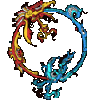
What do folks here think about the afterlife?
konchog uma replied to Rainy_Day's topic in General Discussion
@cat: yes if reincarnation is a reality, this is most certainly the afterlife, and the prelife, and in that sense just another bardo. i think that death is like a dream state where our soul's resonance shapes the experience it has and the journey onward. -

What do isolated/enlightened people dream about?
suninmyeyes replied to Everything's topic in General Discussion
For me dreams are so interconnected with waking state. Very clearly. It is all a flow of life or something. I say 'or something' becouse for example yesterday while walking home in the evening ,I had this strong feeling accompanied with the thought : Am I alive? No I am alivness. Like a perfect puzzle fitting into the tapestry of life just as it is, no matter what. Fulfilling its nonexisting purpose. I suppose a big portion of a persons dreams would reflect how much person is influenced by their enviroment and if someone is awake while being awake that means influence wouldnt be so strong. Which in turn means dream would either be like a meditation or interdimensional sorting things out as per persons purpose in this life. -
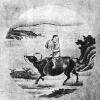
Experience, Realization, View, Practice and Fruition
Lucky7Strikes replied to xabir2005's topic in Buddhist Discussion
No, then you'd be perceiving someone else's delusion, or your own memory of a certain delusion, even though knowing it as delusion, it is still perceived. This contrasts to what you said earlier about not perceiving conventions at all. To understand someone else's conventions you must have a memory or some reference to it. And in referring to it, you are perceiving it, hence perceiving conventional factors. It does not, and I will show you why below. This does not somehow indicate that the material world is illusory, or somehow that the chair does not exist. Really, this is just purely stupid. You are equating "core" to mean "reality" when they are different issues altogether. Something that obviously does not have a core, say a wind, is taken to be real by almost everyone. When you ask them, do you think the wind has a core or an essence, they will likely say no, it's just blowing wind that arises and disappears when there is movement in the air. But people are not foolish to conclude from this that the wind is an "illusion." An entirely different criteria is applied when you are measuring the degree of reality. The "chair" as a label may be something that is untrue but dependent origination cannot dismiss the reality of the phenomena of the chair itself as an illusion. Why? Because the chair is consequential, as in, you can sit on it without the chair suddenly disappearing. Also the chair has a consistent and lasting effect, as in the chair won't disappear after you rub your eyes or wake up tomorrow and come back to see it. Consequence and consistency are what we use to decide whether or not an experience is illusory or real, and labels arise afterwards for practical use. We say a dream is an illusion because it lacks these characteristics. Another error you are committing is pretty obvious. You are initially suggesting the world of "things." The world of essences. Then you disprove the world of "things" and conclude therefore that the world is actually an illusion...whoa! an extreme conclusion there don't you think? You are only offering two alternatives, one of "things" and the other as an illusion. But consider innumerable ways the world can be, besides these options. Maybe the world isn't made of "things" but is, let's say a movement or a flow. Or a vibration. Or an imagination. Or instead of things, it's really made out of tiny strings as in the string theory. Dependent origination just disproves the world of ultimate "things" and essences, but that's really it. It says experiences arise out of causes and conditions, and in the practical sense no one should really deny that. But does it offer a comprehensive insight into the intricacies of reality and life? Not really. It offers one aspect of life that can be observed. Oh, so the Buddha does perceive labels. Labels are conventions. So the Buddha perceives conventions, yes? -

sleeping qigong/shui gong teachers in USA?
Sloppy Zhang replied to Dreamwalker's topic in Daoist Discussion
Be less concerned with learning sleeping qigong and more concerned with learning the entirety of a complete system, of which sleeping qigong is just a part. I know that, for example, Michael Lomax's tradition has many different aspects and qigongs to it- running qigong, tree qigong, sleeping qigong, standing, walking, etc etc. But they're all just aspects of one overarching practice. I assume it would be the same with the Dragon's Gate lineage. I for one have done a LOT of dreaming and lucid dream work over the years since I started lucid dreaming as a child. I'm just going to tell you up front that, as far as my experience goes, dreaming/lucid dreaming alone is not a very viable strategy. It will be far more effective as a supplement to some other practice. Maybe at very high levels you can switch the ratio, where it is the sleeping which informs most of the practice. But unless you have a lot of experience in a practice in waking, or if you are a phenomenally experienced/talented dreamer, you won't get much out of a sleeping practice on its own. Then again, I have no knowledge or experience of methods from either tradition. You might have more luck contacting Michael Lomax through this board (Ya Mu), unless he hasn't been around, which might be the case, since I don't follow him, or for that matter, keep up with anyone's forum activity. I'm not sure how accessible the Dragon's Gate lineage is. From what I have seen, Michael is tremendously open and accessible. You should have no problem finding out information on seminars and events, and I'm sure if you could meet him in person and demonstrate that you're committed to a full practice, he seems like the kind of guy who'd share with you what you'd like to know. But that's just my impression. Not responsible for anything that goes on between you and him -
Cosmic consciousness* pose? How do you do that pose, if you don't mind me asking? To answer your question: you are here, living your life. In my opinion, you had a vision...like a dream.
-

The Dao De Jhing is a shamanistic treatise
konchog uma replied to flowing hands's topic in Daodejing
Hi flowing hands, maybe it would help for the sake of open discussion to define "shamanic" since i am not sure what you mean by it. In my mind shaman is a siberian word meaning spirit healer. Shamans had a tradition as medicine people who were skilled in plant and animal medicine, and could journey through the astral planes, and dream meaningfully and lucidly. They were like the medicine women and men of siberian culture. Lately the word has come to be appropriated by all cultures who have medicine people, and used very generally. I am assuming you mean it in this general sense, the sense of spirit medicine and an inseparable connection with nature. Is that correct? What is your understanding of "shaman"? And i would like to say that i don't think that one has to choose between it being shamanic or philosophic, although shamanism tends to be very right brained, and philosophy very left brained. We each function with both hemispheres (hopefully), and master lao surely used both of them in his writing of the dao de ching. So it seems that it is both, like people have said. -
Let go of this, let go of that. Why live at all if you have to let go of your dreams. Letting go is for weak people. The easiest thing is to say "Ah big deal, it's hard I don't need this" or "Hmm, I think I just need to let go of that dream to become A or B or C, it's way too unrealistic". What's that word unrealistic even supposed to mean ? Check out the way this whole world appeared. Does that seem realistic to you ? I mean I respect you guys and everything but give me a break, letting go of all your desires makes you an empty shell and that's no happiness that's simply nothing literally. Just breathing and eating until you die.
-
Exactly! Brahman, which is in the higher alaya, believes it is real, quite similiar to the sciential-minded believing that the phenomena of the human-centric dream is real. Buddha suggested that Brahman is not real, only the Tathagata is real. The Tathagata is beyond the conditional state (one supreme, universal Spirit) of Brahman. In reality, Humanism (the Many) does not exist without Brahman (the One). There can be no One, without a Many. There is no Great Self without a Great Other. Brahman, by definition, is the Highest Ego illusion. Why isn't that clear enough in my above posts? V

